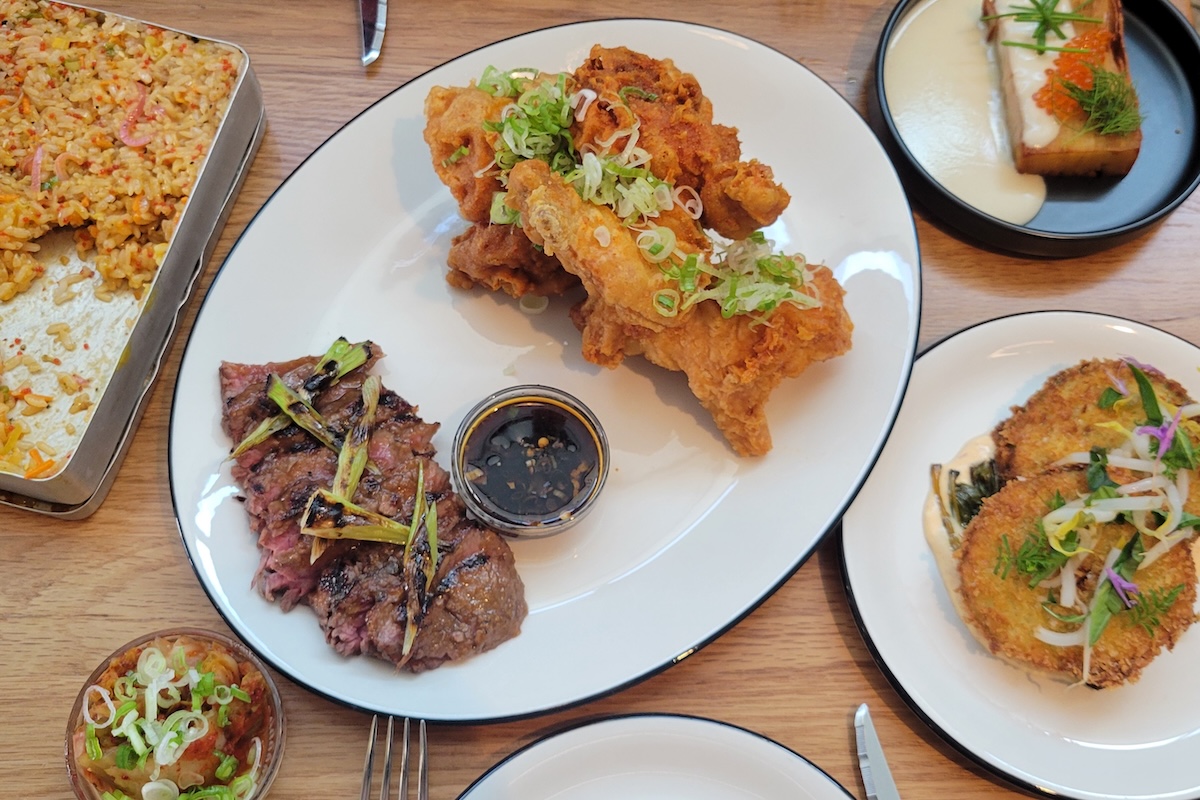In the last 15 years chef Kelly Whitaker, cofounder of Id Est Hospitality, has done a lot. But over the past five years he and his team have started raking in awards for these endeavors.
First, a brief timeline. In 2010 Whitaker and his wife and partner Erika opened the wood-fired pizza spot Basta in Boulder. In 2014 the chef co-founded Cart-Driver, though he is no longer part of the two-location hot spot. He went on to open The Wolf’s Tailor in Denver’s Sunnyside neighborhood in 2018, followed by BRUTO in LoDo the next year, and Berkeley’s Hey Kiddo in 2023. Id Est also runs Boulder’s Dry Storage, a bakery and local mill beloved by chefs and bakers across the Front Range.
If BRUTO and The Wolf’s Tailor sound familiar, they should. They were two of the first restaurants in Colorado to receive a Michelin star and a green star, which denotes sustainability practices. Whitaker also received the 2024 James Beard Award for Outstanding Restaurateur, and in 2022 was the StarChefs Denver Mentor award winner.
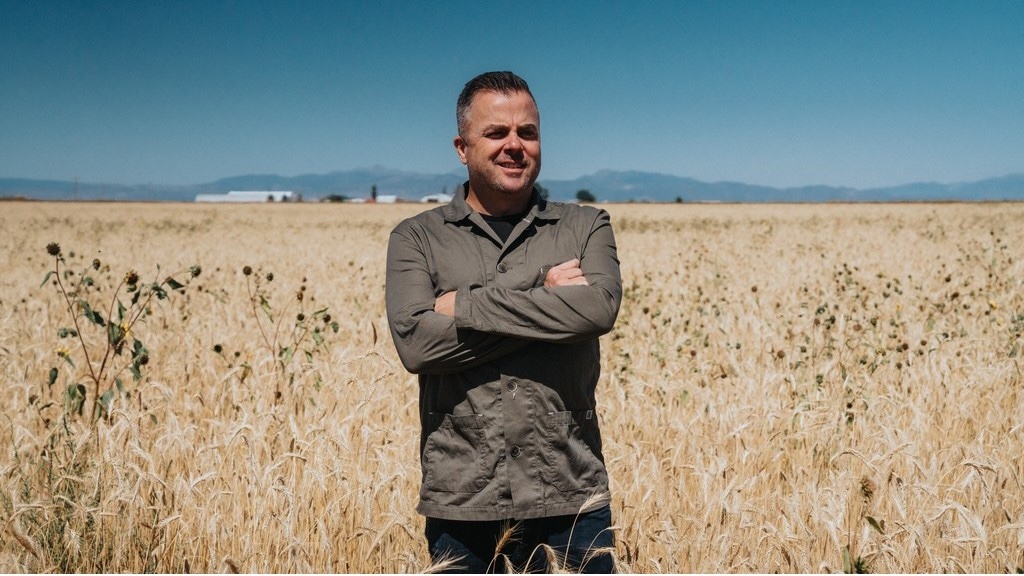
For years Whitaker and his staff have worked with Monterey Bay Seafood Watch, World Central Kitchen, and Slow Food Nations, all organizations aimed at sourcing real foods, zero waste, and feeding initiatives. Id Est now employees full time fermentation specialists, operates the top local mill in the area, and supports burgeoning talent.
As the 2025 Michelin awards ceremony approaches on September 15, we caught up with Whitaker to find out more about his company and what it’s like to garner so much positive attention. Chances are his restaurants will rake in more stars this year, but for the chef, that’s not why he does this.
When you started opening restaurants did you ever expect to be one of the most lauded groups in Colorado?
I wasn’t expecting to win the James Beard, or the Michelin. I never thought for a million years that Michelin would be in Colorado. Everything we have done was for the greater good and I was never trying to win a Beard, or win a Michelin. When the awards started coming and we started getting recognition it wasn’t in my peripheral. When I went to the Michelin awards I thought maybe one would get a star, and one to get a green star.

We are just trying to be an example and be consistent with farmers. We look at the food systems and how restaurants are broken, and we wanted to be a good voice to tackle the issues. We have been a company for 15 years, and nothing happened fast. We took the long road. For us, [the awards are] a testimony to consistency. I am in the long game, people don’t realize before Cart-Driver and other projects, I stood in front of the oven every day.
Did winning the awards change anything?
No. I was expecting, like everyone, that if you do the right thing by people and the industry, it has to be a conduit for good. The name of our group is Id Est, which is Latin and it means ‘an example of.’ We want to create things in this industry that are wins, things other people in the industry could look at. We were one of the first to have a service charge, at Cart-Driver, and we have done that across the board.
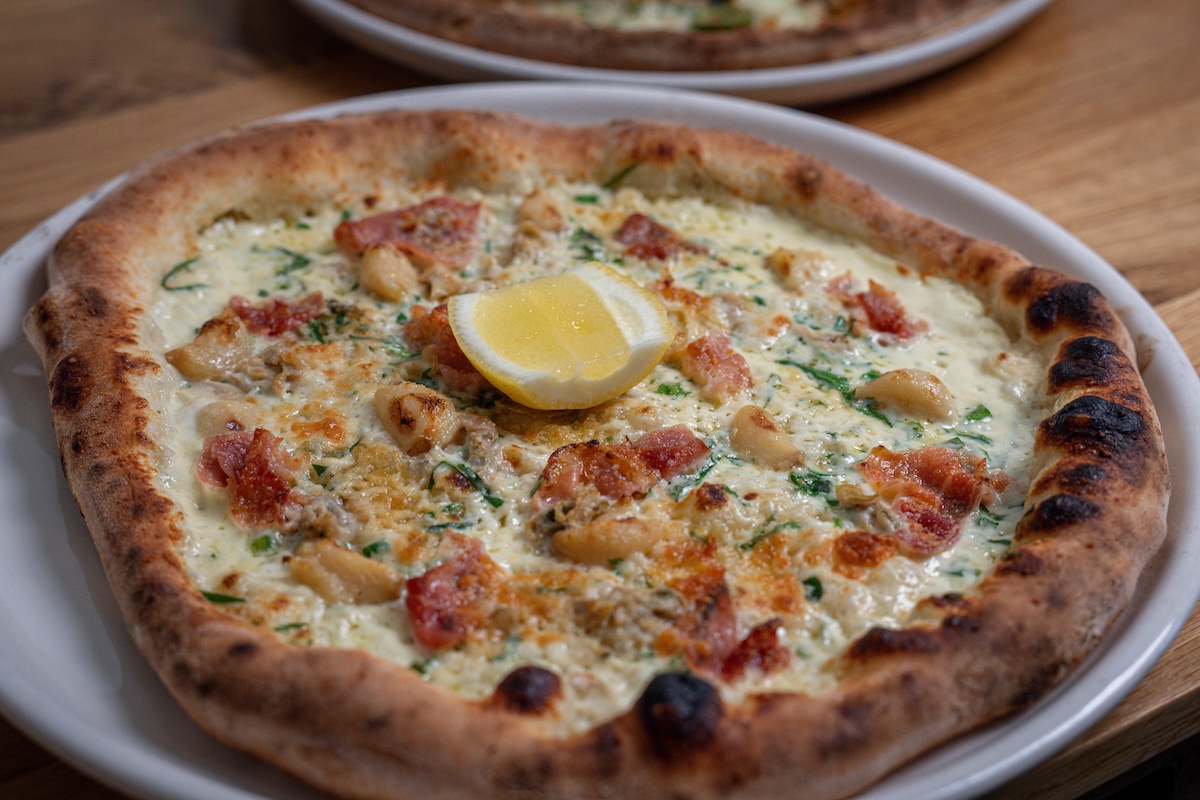
When I started, I was looking at what Chris Bianco (famous for wood-fired pizza in Phoenix) did, and looking at what Michael (Cimarusti of Providence) did. People I looked up to, they became my friends and mentors.
You have quite the resume prior to starting Id Est Hospitality.
I have worked for great chefs. Providence in California just got three [Michelin] stars, and that was my last line cook job. I was there a few weeks ago cooking at an alumni dinner, and people have worked there for 20 years. I wanted to work with people that have these diverse kitchens and different backgrounds.
Was it a goal to cook and serve elevated food when you started in the chef world?
I grew up in Oklahoma and when I started my career, I didn’t understand food. I worked for a small place and an Italian family. It wasn’t until I moved to Los Angeles and spent time in Italy [that I started to get it]. I just wanted to be a good cook, I didn’t understand Michelin or any of it.
How did you hone your culinary skills prior to Id Est?
I went to Colorado State and went to business school. But I was starting to really fall in love with cooking. I was like, I’m not great at math or finance, and I can graduate two semesters early if I switch to hospitality. I just wanted to get to Europe and get out, So I switched and did an abroad program, then graduated two semesters early. With hospitality school, I got the basics and got a degree in hotel restaurant management.
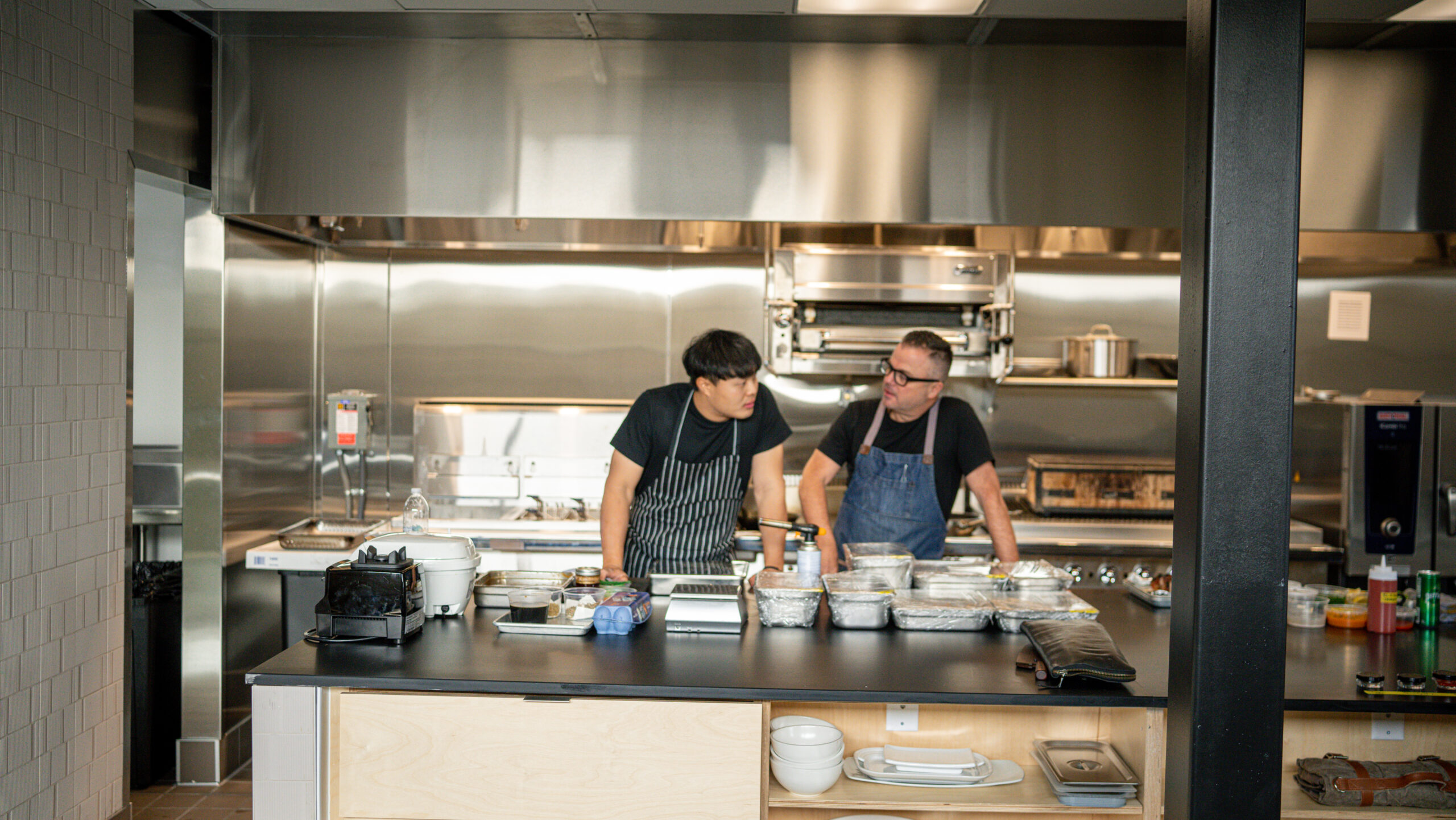
I started working for good chefs for free or for very little money. In order to survive, I was hustling on the side and people would call me and ask for help building a menu. At Providence in LA I was a fish cook, one of the top positions, but it didn’t pay as well as CDC (chef de cuisine).
What was opening and running your first restaurant like?
When I opened Basta I had never been a chef in Colorado. Basta was constrained and no one was truly going there. We were dead broke, but it’s just what I thought I was supposed to be doing, working in front of the oven every day.
We weren’t making money, but rather than close Basta, I just stayed on, no matter how difficult it was. I’ve done that my whole life, stay in it and weather the storm. We (his young daughter and wife Erika) lived below the poverty line for six or seven years. We just stayed in it. The family helped and we lived in Erika’s grandma’s house, then her mom’s.
Now Basta is one of the top pizza spots in the region, when did that change?
Basta started getting traction because Bobby and Danette [Stuckey of Frasca Food & Wine] would come and sit at Basta in an empty dining room. I would just cook for them.
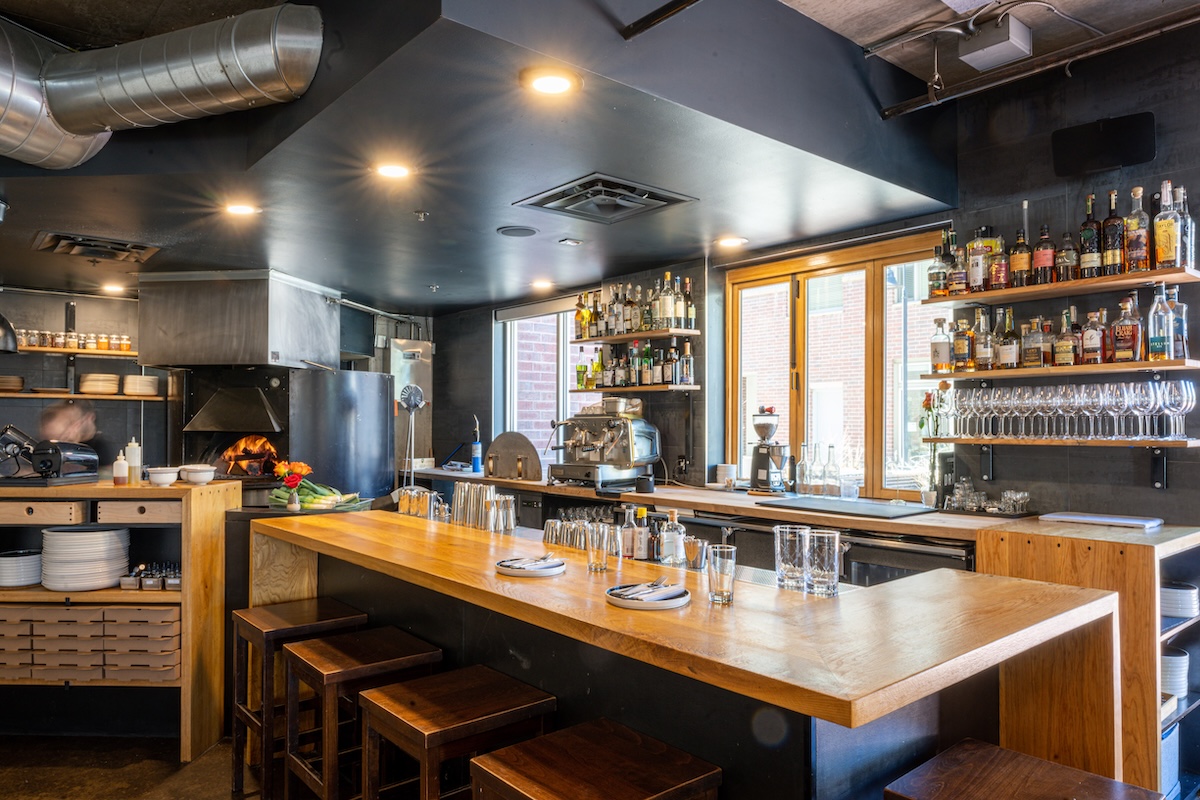
We were an industry connector, and Bobby would recommend Basta and people came in. We did industry events all the time, like a New Year’s Day brunch for industry. They started advocating for people coming in and we started getting some traction. Then [food journalist] Amanda Faison came in, and we ultimately made her 5280 Magazine list.
Are you surprised the Denver spots have garnered so many accolades?
We have this range of concepts, and we manage all our things as little ecosystems. BRUTO is different from Wolf’s Tailor, and different from the bakery [Dry Storage]. We’re just really focused on impact and change, not the awards.
I don’t know if it’s a humility thing or it’s just that that’s not why I am here. It was about leveling up the city and making Denver better. We have always taken on that role. If you talk to Taylor [Stark] at Wolf, he doesn’t care about the title and he hasn’t been putting himself out for a James Beard award. I feel like we just got all these accolades and stuff, and it’s not about validation. It’s more about awards for the future, like, watch what we do with these things.

We celebrate everyone who is trying to do good in the industry, that’s how I viewed it. Erika said you can’t say that, because our team has worked hard to get to this point. It means everything to put a Michelin star on their resume. To celebrate the hard work they have put in to get here.
Kelly did not do that, we did this as a whole. I like the restaurant awards, because everyone gets to share [the credit].
StarChefs mentor award, I never put it out there. I just went back to work and to the innovation of our food. That’s why I feel like I’m just scratching the surface. Now we are going to use that as a platform, and the awards accelerate our mission to elevate the food system. I am definitely a futurist, not a dweller of the past.
What are you working on now?
Now we are leaning into corn. We did buckwheat last, it was a really challenging menu. With Michael (Diaz de Leon, former chef at BRUTO) and exploring foods, I learned so much from him and we traveled everywhere. I get so inspired by the people in this company. But again, we are far off from what we are trying to achieve, and we may never achieve it. Basically its the very simple idea that we are going to be the R&D (recipe and development) in this industry.
We aren’t just looking at corn as a study for Mexico, but Native Americans, the Carolinas, we want to understand the food. We have been doing it for months, and I have 20 people at Wolf’s Tailor willing to learn.
So what’s the future of Id Est?
This company, we aren’t even close to our goals. For The Wolf’s Tailor to fully be actualized, I am still five to ten years off. Our sight isn’t on a second star, we are just going to keep doing what we are doing.
Everything has a purpose. Everything we have is a product. We think, ‘how are we actively restoring the ecosystem?’ There are so many ways. If you have five net positive restaurants that are all doing these things, you could be the offset for ten bad restaurants that are creating waste. We have lists now of ingredients that are actively restoring
If Danny Meyer is hospitality, we will be research. People don’t know our story, and I am okay about it. I have moved on. I am more driven by the future. That’s what I want Id Est to be.

